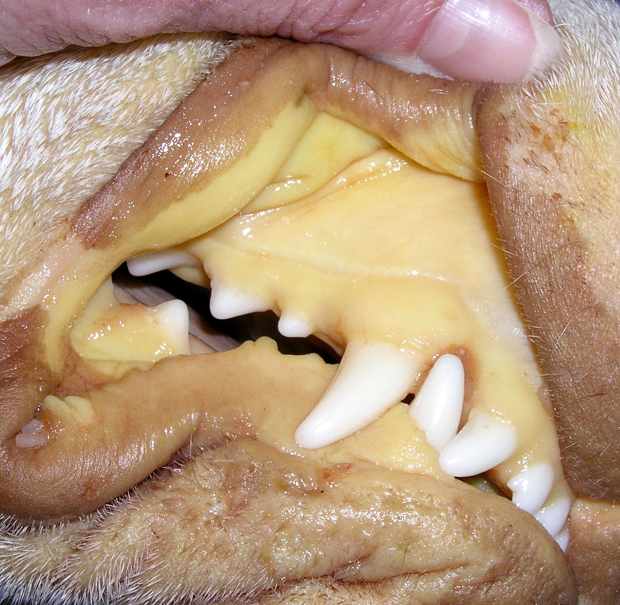
Photo by mdorottya. All other photos courtesy of Long Beach Animal Hospital (LBAH).
Anorexia is a medical term that means “no appetite.” Partial anorexia means “a decrease in appetite.” Anorexia is one of the more common reasons that pets are brought to us for medical attention.
Some pet owners are too busy to notice at first that their pet has anorexia or partial anorexia. If your pet has anorexia for a long-enough period of time, it will lose weight, which is why we carefully check your pet’s weight on every visit and compare it to previous weights to look for a change.
There are many causes to anorexia, the more common ones are:
- A foreign body, an infected tongue, enlarged tonsils and dental disease are some of the problems in the oral cavity that can cause anorexia. Your pet might give you a clue to an oral-cavity problem by pawing at the mouth, drooling, dropping food after trying to chew it, or reluctance to being petted around the face.
- During a routine physical exam on a pet with anorexia, we carefully examine the oral cavity and palpate the throat and esophagus to make sure there are no problems there.
- Infections that lead to fever can cause anorexia. Pets with upper-respiratory infections, especially cats, cannot smell food well and might have oral ulcers in addition to the fever, all compounding the problem.
- Arthritic pets, postoperative pets or those experiencing trauma such as a broken bone can experience significant pain. This pain will cause anorexia.
- Disease of any of the internal organs can cause anorexia. Cats experience a unique syndrome called hepatic lipidosis. These cats are initially overweight, and when they experience a stressor that causes them to stop eating, the liver shuts down. The problem can be corrected if caught early enough.
- Any disease of the stomach and intestines can cause anorexia. Cancer, inflammation ulcers, internal parasites and foreign bodies are the more common ones. Sometimes, the anorexia comes from the disease itself and all its effects; other times, the anorexia of the gastrointestinal tract is caused by pain.
- Territorial animals like cats might not eat when intimidated by another pet in the household.
- Stress from excess sounds like fireworks can cause anorexia.

Yellow gums, called icterus, can be a clue to the cause of anorexia. It might mean anemia or liver disease.

A foreign body stuck in the mouth is a common cause of anorexia.
The cause of anorexia is diagnosed based on history and physical-exam findings. Blood panels, radiographs, ultrasounds and fecal exams for parasites are common tests to aid in diagnosis. With such a wide variety of causes, the treatments for anorexia are varied. While we are diagnosing the cause, we initiate treatment to correct the problem. Waiting too long can cause the body to break down and inhibit its ability to correct itself.

Conducting an oral exam is essential for pets with anorexia. A cracked tooth could be one reason for a pet not to eat.
Treatment may consist of fluids; assisted feeding, including feeding tubes; pain medication; ulcer medication; appetite stimulants; antibiotics; and medications targeted at cancer or specific organs.
The Diseases section of our website comprises a vast amount of information on the diseases that cause anorexia.

